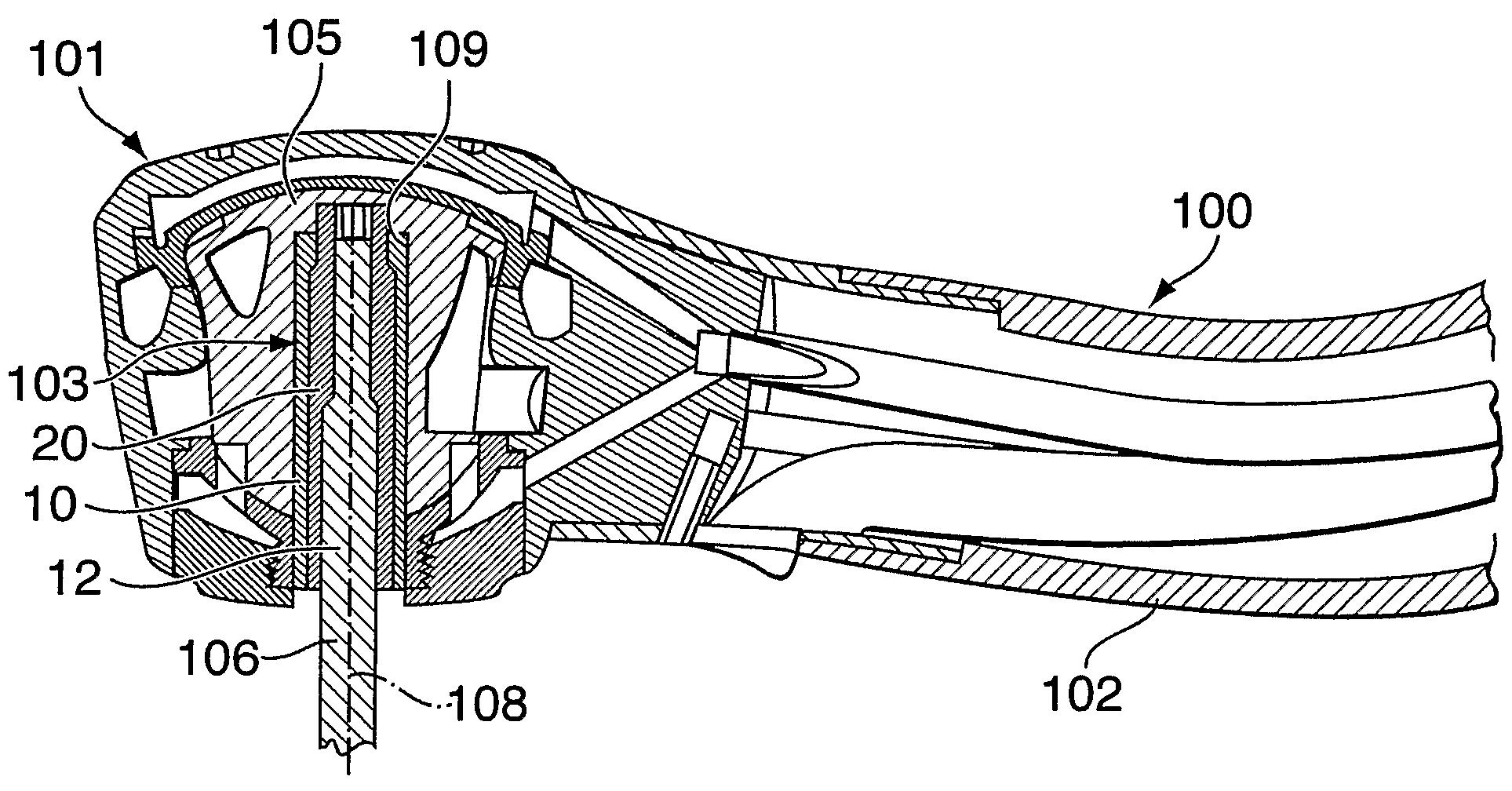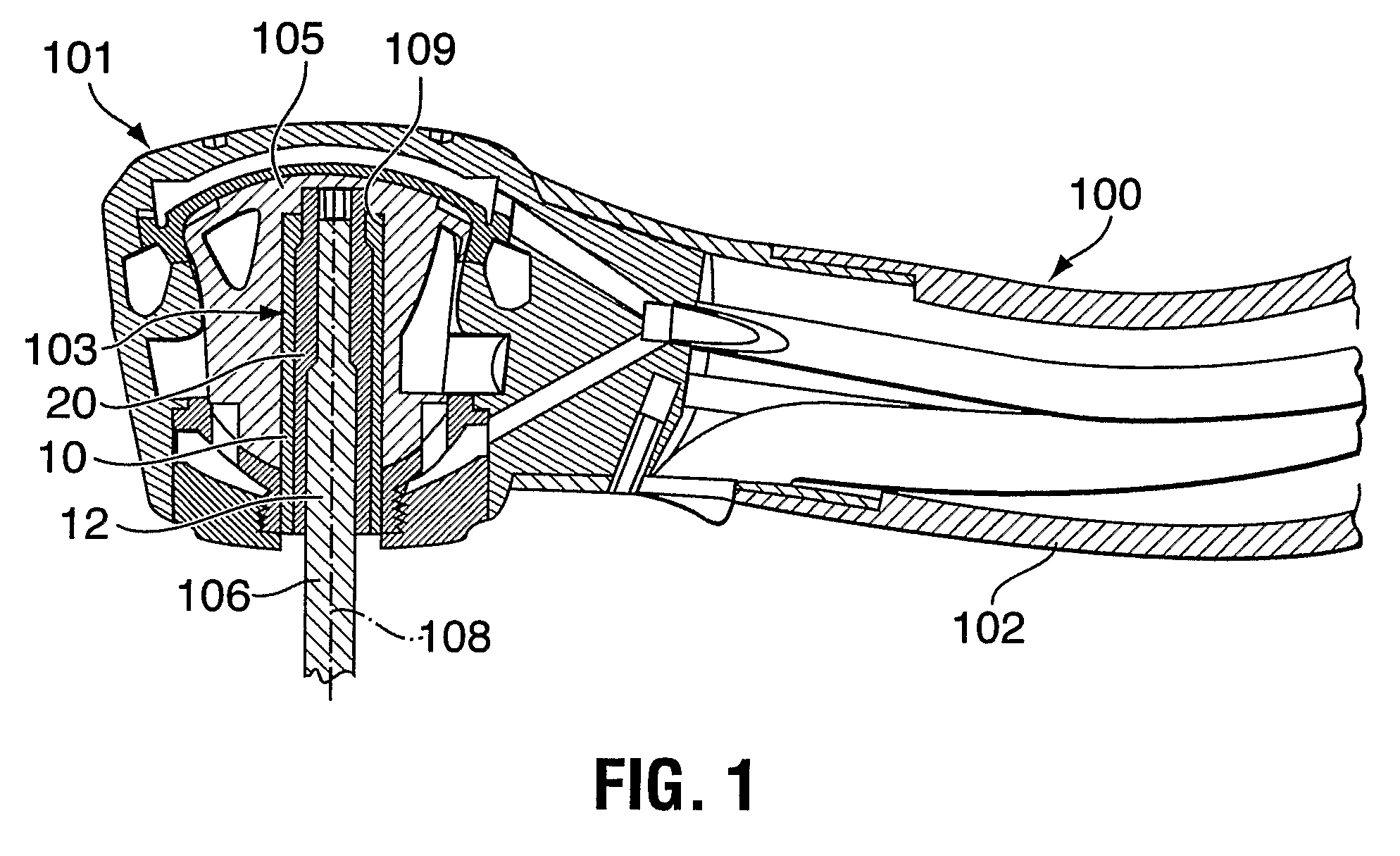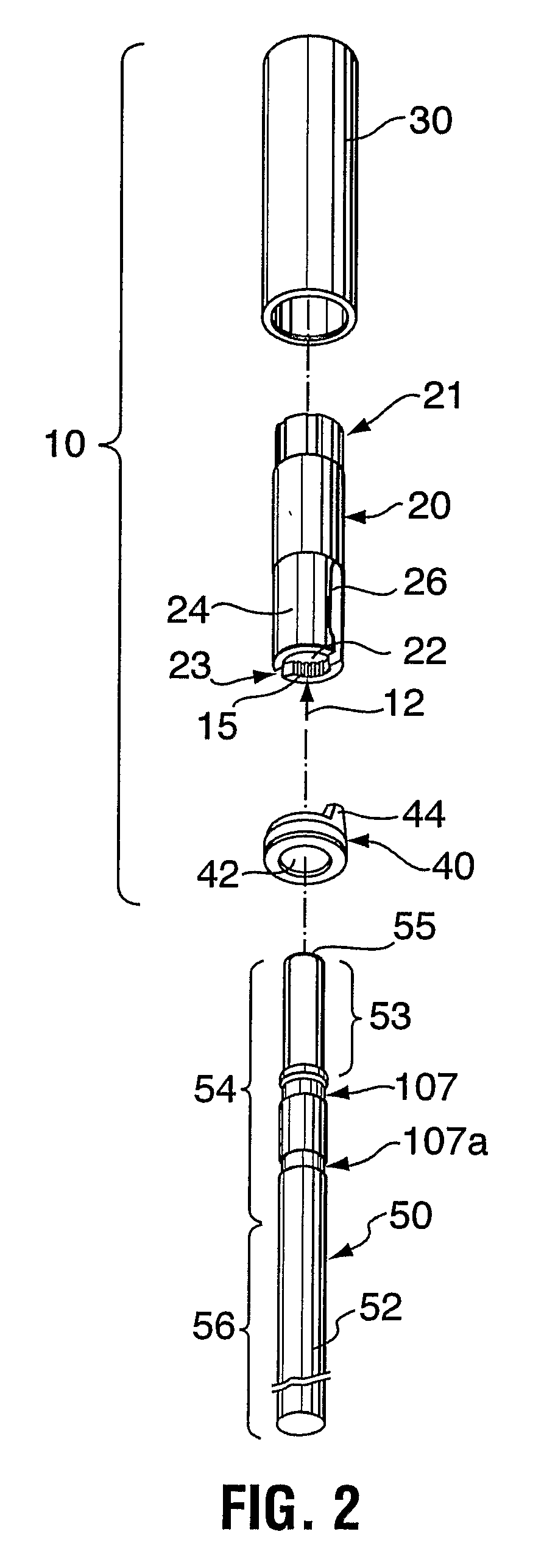Adjustable dental tool drive arrangement
a technology of driving arrangement and dental tools, which is applied in the direction of boring tools, turning tools, dental tools, etc., can solve the problems of repeated tool changes, time-consuming and cost-intensive, and not designed to allow for length adjustment of tools
- Summary
- Abstract
- Description
- Claims
- Application Information
AI Technical Summary
Benefits of technology
Problems solved by technology
Method used
Image
Examples
Embodiment Construction
[0045]Generally, the present invention provides a tool drive arrangement for a handpiece with a drive head, the tool drive arrangement permitting length adjustment of a tool in the drive head by concentrically supporting the tool in the drive head at any position from a fully inserted position to a maximum retracted position.
[0046]In one embodiment, the invention provides a tool drive assembly including the tool drive arrangement, a rotatable tool and a rotatable tool supporting element for concentrically supporting the tool from the fully inserted position to the maximum retracted position. The tool preferably includes a maximum retraction indicator for indicating to a user when the tool has been retracted to the maximum retraction position. This provides a significant advantage over the prior art by allowing a user to adjust the exposed length of a rotatable tool, preferably a dental bur, without exceeding safe operating limits.
[0047]More particularly, the rotatable tool drive ass...
PUM
 Login to View More
Login to View More Abstract
Description
Claims
Application Information
 Login to View More
Login to View More - Generate Ideas
- Intellectual Property
- Life Sciences
- Materials
- Tech Scout
- Unparalleled Data Quality
- Higher Quality Content
- 60% Fewer Hallucinations
Browse by: Latest US Patents, China's latest patents, Technical Efficacy Thesaurus, Application Domain, Technology Topic, Popular Technical Reports.
© 2025 PatSnap. All rights reserved.Legal|Privacy policy|Modern Slavery Act Transparency Statement|Sitemap|About US| Contact US: help@patsnap.com



